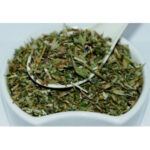Jerusalem artichoke, also known as sunroot, sunchoke, or earth apple, is a nutrient-rich tuber that offers a wide range of health benefits. Discover how incorporating Jerusalem artichoke into your diet can help boost your overall health and well-being.
Table of Contents
- What is Jerusalem Artichoke?
- Nutritional Benefits of Jerusalem Artichoke
- Health Benefits of Jerusalem Artichoke
- How to Incorporate Jerusalem Artichoke into Your Diet
- Jerusalem Artichoke Recipes
- Potential Side Effects and Precautions
- Exploring the Unique Benefits of Jerusalem Artichoke Coffee Substitute from Health Embassy
- Frequently Asked Questions
What is Jerusalem Artichoke?
Origins and Cultivation
The Jerusalem artichoke, also known as sunchoke, originates from North America where it was a staple crop for Native American tribes well before European colonization. Its adaptability allowed it to spread across various climates and regions, flourishing under a wide range of soil conditions. Today, Jerusalem artichoke is cultivated globally, primarily in temperate zones, for its edible tubers which offer numerous health benefits. Farmers appreciate the plant’s hardiness and the minimal care it requires to thrive, making it a sustainable choice for both commercial and personal gardening.
Appearance and Flavor
Jerusalem artichokes are notable for their knobby, uneven tubers, which strongly resemble ginger root or potatoes but with a thinner, paler skin. When raw, their texture is crisp and crunchy, much like that of water chestnuts, making them a unique addition to salads and other fresh dishes. The flavor of Jerusalem artichokes is subtly sweet and nutty, often compared to a cross between a potato and a jicama, with a hint of artichoke heart. This distinct taste and crunchy texture make them incredibly versatile in culinary uses, from being roasted or sautéed to pureed into a creamy soup or even pickled for an extra tang. Their flavor profile allows them to pair exceptionally well with both earthy and savory ingredients, enhancing recipes with their delightful taste and texture.
Nutritional Benefits of Jerusalem Artichoke
High in Fiber
Jerusalem artichoke is an excellent source of dietary fiber, with one cup of cooked tuber providing approximately 10 grams of fiber. Fiber is essential for digestive health and can help prevent constipation, regulate blood sugar levels, and support weight management.
Rich in Vitamins and Minerals
Jerusalem artichoke is packed with vitamins and minerals that are important for overall health and well-being. It is particularly high in potassium, iron, magnesium, and vitamin C, all of which play key roles in various bodily functions.
Low in Calories
Despite its nutritional density, Jerusalem artichoke is relatively low in calories, making it an excellent choice for those looking to maintain or lose weight. One cup of cooked Jerusalem artichoke contains approximately 120 calories, making it a filling yet calorie-conscious option.
Health Benefits of Jerusalem Artichoke
Supports Digestive Health
The high fiber content of Jerusalem artichoke promotes healthy digestion by adding bulk to the stool and supporting regular bowel movements. This can help prevent constipation and promote overall digestive comfort.
Regulates Blood Sugar Levels
The fiber and resistant starch found in Jerusalem artichoke can help stabilize blood sugar levels and improve insulin sensitivity, making it a beneficial food for individuals with diabetes or those at risk of developing the condition.
Boosts Immune Function
Jerusalem artichoke is rich in vitamin C, a powerful antioxidant that helps support immune function and protect against oxidative stress. Regular consumption of Jerusalem artichoke may help reduce the risk of chronic diseases and infections.
How to Incorporate Jerusalem Artichoke into Your Diet
Roasted Jerusalem Artichoke
- Preheat oven to 400°F (200°C).
- Wash and scrub Jerusalem artichoke tubers, then cut them into bite-sized pieces.
- Toss with olive oil, salt, and pepper, then spread in a single layer on a baking sheet.
- Roast for 25-30 minutes, or until golden brown and tender.
Soup with Jerusalem Artichoke
- Heat olive oil in a large pot over medium heat.
- Add chopped onion and garlic and cook until softened.
- Add diced Jerusalem artichoke, vegetable broth, and seasonings.
- Simmer until Jerusalem artichoke is tender, then blend until smooth.
Recipes with Jerusalem Artichoke
Jerusalem Artichoke Salad
- Ingredients:
- 2 cups cooked Jerusalem artichoke, diced
- 1/4 cup chopped fresh parsley
- 2 tablespoons lemon juice
- 1 tablespoon olive oil
- Salt and pepper to taste
- Directions:
- In a large bowl, combine diced Jerusalem artichoke, parsley, lemon juice, and olive oil.
- Season with salt and pepper to taste.
- Toss to combine, then serve chilled or at room temperature.
Jerusalem Artichoke Stir-Fry
- Ingredients:
- 2 cups cooked Jerusalem artichoke, sliced
- 1 cup mixed vegetables (such as bell peppers, broccoli, and snow peas)
- 2 cloves garlic, minced
- 2 tablespoons soy sauce
- 1 tablespoon sesame oil
- Directions:
- Heat sesame oil in a large skillet or wok over medium heat.
- Add minced garlic and cook until fragrant.
- Add sliced Jerusalem artichoke and mixed vegetables, then stir-fry until tender.
- Add soy sauce and toss to coat evenly, then serve hot.
Potential Side Effects and Precautions
While Jerusalem artichoke is generally safe for consumption, some individuals may experience gas, bloating, or digestive discomfort when first incorporating it into their diet. This is due to its high fiber content and the presence of certain types of carbohydrates that can ferment in the gut. To minimize these side effects, start with small amounts of Jerusalem artichoke and gradually increase your intake over time.
Exploring the Unique Benefits of Jerusalem Artichoke Coffee Substitute from Health Embassy
Health Embassy offers a unique Jerusalem Artichoke Coffee Substitute, which blends roasted Jerusalem artichoke rhizomes with roasted dandelion root and aromatic spices like cardamom, cinnamon, and cloves. This product is caffeine-free and designed to support healthy digestion and overall well-being, thanks to its rich antioxidant content. It’s an excellent choice for those looking for a coffee alternative with digestive benefits.
Frequently Asked Questions
1. Can Jerusalem artichoke help with weight loss?
Yes, Jerusalem artichoke is low in calories and high in fiber, making it a filling yet calorie-conscious choice for those looking to lose or maintain weight.
2. Are there any contraindications for consuming Jerusalem artichoke?
While Jerusalem artichoke is generally safe for most people, individuals with certain digestive conditions such as irritable bowel syndrome (IBS) or fructose intolerance may experience gastrointestinal discomfort when consuming Jerusalem artichoke due to its high fiber and fructan content.
3. How can I store Jerusalem artichoke?
Jerusalem artichoke can be stored in the refrigerator for up to two weeks in a perforated plastic bag. Alternatively, you can store them in a cool, dark place such as a cellar or pantry for up to one month.






